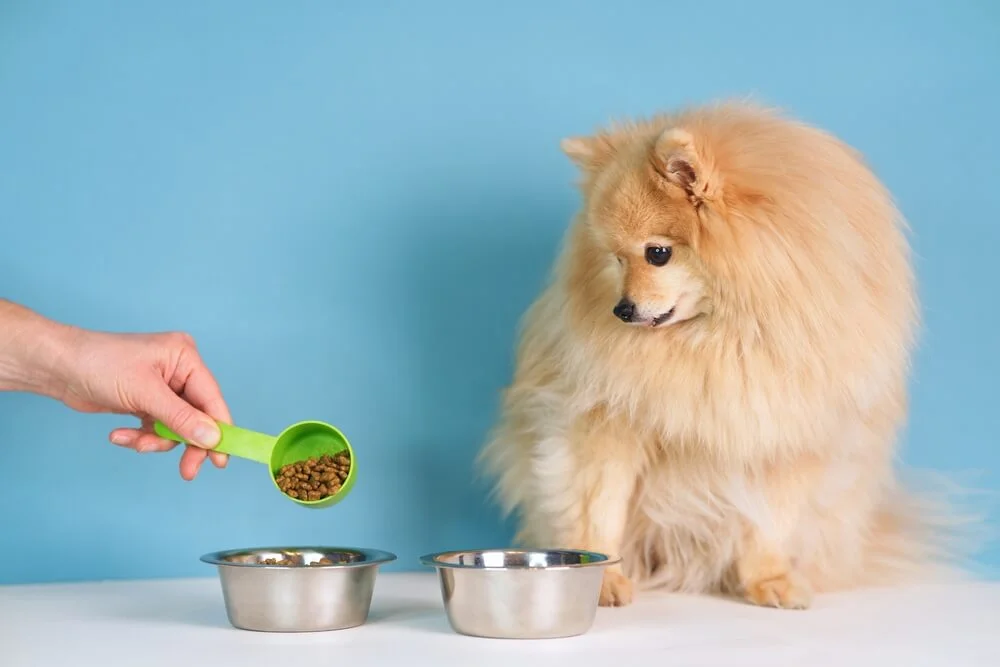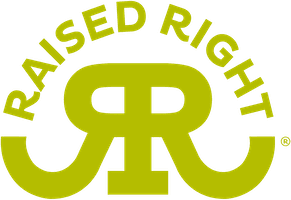
Did you know that depending on a dog’s age, their nutritional requirements differ? This means that the nutrients your dog needs to get from their diet are also different at different life stages. While it can be tempting to pick up a bag of puppy food from the store if they have a great deal on it or feed the same diet to your new puppy and your already established fur baby, did you know it might be harmful to your adult dog? Let’s consider why.
Why are Puppy Diets Different?
It can be easy to assume that all dog food, especially kibbles, comprises the same nutritional components, especially as their appearances can be very similar. However, much scientific research has gone into formulating these diets to ensure they meet the dietary needs of the life stage they are advertised for. Growing puppies have higher requirements for nutrients like calcium, phosphorus, zinc, copper, and sodium than adult dogs do as they are still growing their bones and tissues. Too much or too little of a vitamin or mineral in your puppy’s diet can lead to health issues. Therefore, it is always advisable to feed your puppy a diet formulated specifically for puppies. Home-preparing diets for growing puppies is exceptionally challenging. Discuss this with a licensed veterinary nutritionist before attempting it to avoid doing more harm than good.
Can I Feed My Adult Dog Puppy Food?

Adult dogs have very different nutritional needs when compared to puppies and their metabolisms typically are slower.
While it may seem harmless, feeding a diet for puppies to an adult dog can actually lead to some health concerns. Adult dogs have very different nutritional needs when compared to puppies, and their metabolisms typically are slower. Therefore, it is not advisable. Instead, it is recommended that you feed your dog a life-stage-appropriate diet. Look for dog foods that are formulated to meet AAFCO’s nutrient profiles for a complete & balanced diet for adult maintenance. If you are unsure whether the food you provide is appropriate for your dog, then speak to your veterinarian.
What Problems May I See Feeding Puppy Food to my Adult Dog?

Given that most puppy food is more calorically dense than adult food, it should come as no surprise that feeding it to your adult dog is likely to lead to them gaining weight.
Obesity
Given that most puppy food is more calorically dense than adult food, it should come as no surprise that feeding it to your adult dog is likely to lead to them gaining weight. Obesity is a preventable disease, but alarmingly, up to 30% of the canine population in the States is considered obese. Careful nutritional management and regular exercise are the cornerstones of maintaining a healthy weight for your dog. Obesity has been linked to many diseases in dogs, including arthritis (see below), reduction in lifespan, cancer, diabetes, heart disease, and urinary issues.
Joint Disease
Joint disease, unfortunately, can come hand in hand with obesity. Arthritis, or inflammation of the joints, is reported to have a prevalence of as many as 20% in dogs over one year of age in the United States, with obesity being considered a risk factor. After the development of arthritis, obesity can hasten the disease’s progression.
Kidney Issues
While a puppy diet might not cause kidney disease in your adult dog, the high protein content in most puppy foods is not advisable for animals with known kidney issues. Chronic kidney disease is estimated to affect around 0.5-1% of the canine population in the United States. It is often diagnosed relatively late after a significant portion of the kidney has been affected.
When Should I Stop Feeding Puppy Food?
Generally speaking, it is advisable to begin to transition your puppy onto an adult diet around the age of 12 months. Larger or giant breed puppies continue to grow for much longer, so depending on the breed in question, a transition is usually recommended between 18-24 months of age for giant breed puppies. Your veterinarian can give you tailored advice to your puppy’s needs regarding diet, so make sure to ask at your check-ups.
What About Diets For All Life Stages?

Diets formulated for all life stages aren’t optimal as adult dogs don’t have the same nutritional requirements as puppies do.
There are some diets that advertise as suitable for all life stages. Typically, these diets contain the minimum nutritional requirements for any given life stage. While all-life-stage diets are suitable for some dogs, they aren’t optimal for most dogs because puppies have different nutritional requirements than adult dogs. For a more tailored nutritional approach, you can look for companies who formulate stage-of-life specific diets instead of all-life-stages diets. If you are unsure about what’s right for your puppy or adult dog, then speak to your veterinary care provider for advice.”
Final Thoughts
Nutrition for your dog is complicated, and getting it right not only for your growing puppy, but also for your adult dog is crucial for their health. It’s optimal to feed a stage-of-life specific appropriate diet that meets AAFCO’s standards for a complete balanced diet. If you’re uncertain if what you are providing to your dog is correct, then speak to your local veterinary care provider for advice.
FAQs
Can puppy food give my dog diarrhea?
Puppy food can cause diarrhea in some adult dogs. It also can lead to health problems such as obesity and subsequent joint disease. Try to feed a stage-of-life specific diet that meets AAFCO’s standards for a complete balanced diet.
Can a puppy eat adult dog food?
Puppies have very different nutritional needs from adult dogs and, as such, should not be fed an adult-specific diet. Puppy diets are formulated to contain the essential vitamins and minerals a growing puppy needs. Diets deficient in these nutrients can lead to health problems such as secondary nutritional hyperparathyroidism, rickets, and even obesity!



